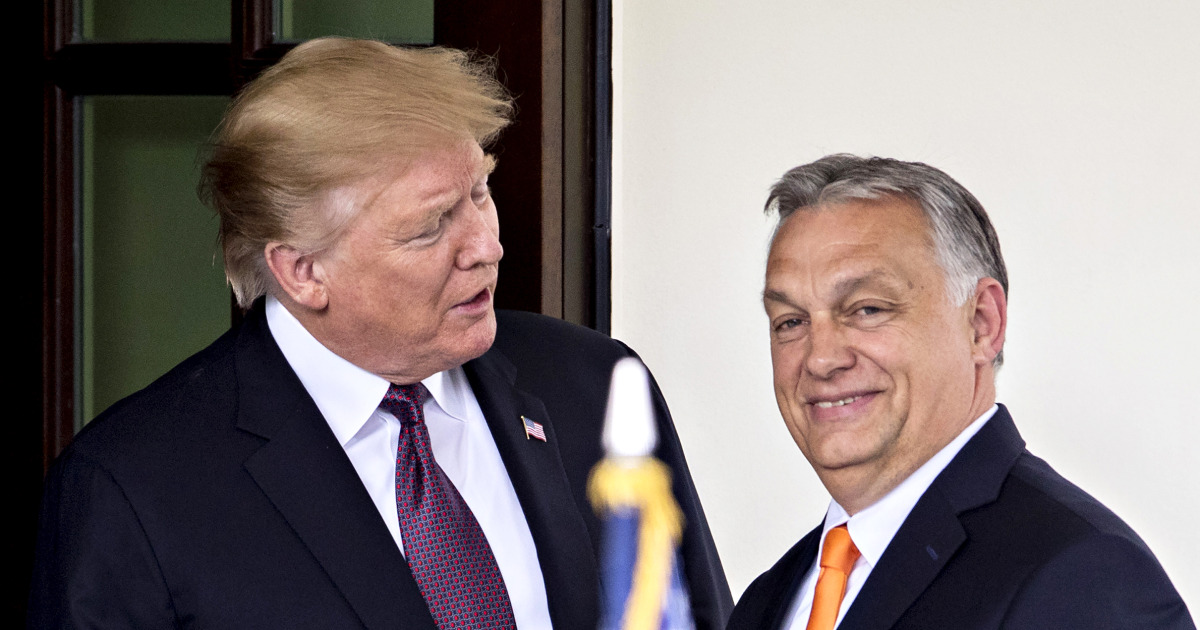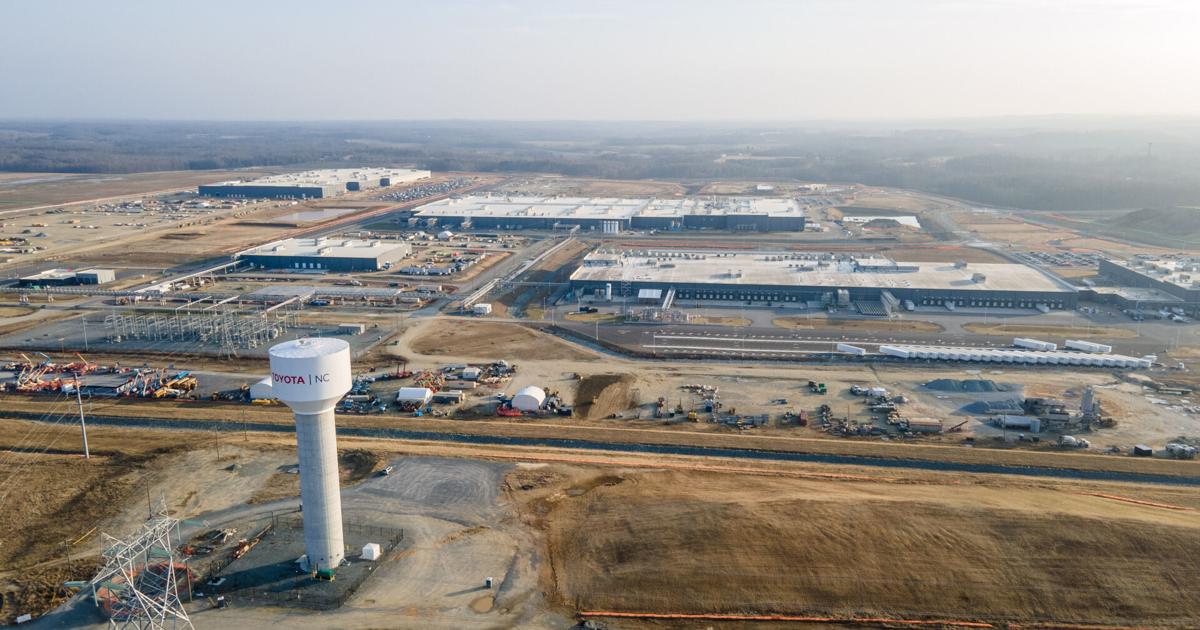Will Hungary Follow Trump's Lead and Label Antifa as a Terrorist Group?

Published: 2025-09-19 08:39:58 | Category: Trump GNEWS Search
The Hungarian government, led by Prime Minister Viktor Orbán, has announced plans to designate the anti-fascist movement, commonly known as antifa, as a terrorist organisation, mirroring a recent declaration by former U.S. President Donald Trump. This move is part of a broader trend of right-wing populist leaders framing leftist activism in a negative light, raising questions about the implications for civil liberties and political dissent in Hungary.
Last updated: 07 October 2023 (BST)
Key Takeaways
- Hungary plans to designate antifa as a terrorist organisation, following a similar announcement by Donald Trump.
- Antifa is not a formal organisation but an ideology encompassing various anti-fascist groups.
- Orbán's decision appears linked to a recent incident involving antifascist activists and far-right demonstrators in Budapest.
- The classification of antifa as terrorists raises concerns about freedom of expression and political dissent.
- Orbán's comments reflect a growing trend among right-wing leaders to target left-wing activism.
What Is Antifa?
Antifa, short for "anti-fascist," refers to a diverse array of activist groups and individuals who oppose fascism and far-right ideologies. It is characterised more by a set of beliefs and actions rather than a strict organisational structure. Members often engage in protests and counter-demonstrations against far-right groups, employing various tactics, including direct action.
Origins and Ideology
The modern antifa movement draws inspiration from early 20th-century anti-fascist groups in Europe, particularly in Germany during the rise of the Nazis. In contemporary settings, antifa activists may utilise militant tactics, especially during protests against neo-Nazi and white supremacist gatherings. However, the movement is often met with criticism and accusations of violence, raising debates about the boundaries of acceptable protest.
Orbán's Decision and Its Context
Prime Minister Viktor Orbán's announcement to label antifa as a terrorist organisation comes in the wake of a broader political climate characterised by increasing polarisation. His remarks were made following Trump's announcement, suggesting a direct influence from the U.S. political landscape on Hungarian policy.
Incidents Prompting the Classification
The decision seems connected to a specific incident that occurred in 2023, where antifascist activists reportedly assaulted individuals affiliated with a far-right event in Budapest. This altercation is cited by Orbán as justification for the new classification, despite antifa groups having minimal presence or political activity in Hungary.
The Case of Ilaria Salis
One notable figure in the discussion around antifascism in Hungary is Ilaria Salis, an Italian activist who faced legal consequences for her involvement in the aforementioned incident. Salis was jailed for over a year and subsequently placed under house arrest after being elected to the European Parliament, which granted her legal immunity. This turn of events has ignited diplomatic tensions between Hungary and Italy, with Orbán expressing disapproval of her release and framing it as a failure of justice.
Implications for Civil Liberties
Designating antifa as a terrorist organisation carries significant implications for civil liberties in Hungary. Critics argue that such classifications can lead to the suppression of legitimate dissent and the stifling of free speech. Orbán's government has already faced scrutiny for its authoritarian tendencies, including curtailing press freedom and limiting the activities of civil society organisations.
Potential Effects on Activism
Labelling antifa as a terrorist organisation may discourage individuals from participating in protests or activism for fear of legal repercussions. It raises concerns about how the government could use this designation to justify crackdowns on various forms of dissent, potentially criminalising peaceful protests against government policies.
The Broader Political Landscape
Orbán's stance is indicative of a larger trend among right-wing populists across Europe and the United States, who often position themselves against leftist movements. This strategy not only galvanises their base but also serves to distract from other pressing issues within their administrations, such as economic challenges or governance failures.
Public Opinion and Political Reactions
The announcement has elicited mixed reactions within Hungary. Supporters of Orbán view the move as a necessary response to perceived threats from radical leftist groups. In contrast, opponents argue that this classification is a tactic to further consolidate power and undermine democratic norms.
International Reactions
Internationally, the decision may draw criticism from human rights organisations and advocates for civil liberties. Observers will likely scrutinise how the Hungarian government implements this policy and its impact on political discourse and activism in the country.
What Happens Next?
As Hungary moves forward with this designation, the world will be watching closely. The implications for political dissent and civil rights could set a concerning precedent for other nations considering similar actions against leftist movements.
Conclusion
The classification of antifa as a terrorist organisation in Hungary underlines the ongoing battle over ideological narratives in contemporary politics. As right-wing populism continues to rise, the consequences for civil liberties and political discourse remain a critical area of concern. The situation invites reflection on the balance between maintaining order and protecting the rights of individuals to express dissenting views.
As Hungary navigates this new policy, the global community will be looking at how it influences both domestic and international political landscapes. What might this mean for the future of activism in Hungary and beyond? #Antifa #CivilLiberties #Hungary
FAQs
What does the term "antifa" mean?
Antifa stands for "anti-fascist" and refers to a collection of groups and individuals opposing fascism and far-right ideologies, often through protests and direct action.
Why did Hungary decide to classify antifa as a terrorist organisation?
Hungary's decision appears to be influenced by a recent incident involving antifascist activists in Budapest and reflects a broader alignment with right-wing populist movements, particularly following similar announcements from the U.S.
What are the potential consequences of this classification?
Designating antifa as a terrorist organisation could lead to increased legal scrutiny of activists, suppression of civil liberties, and a chilling effect on free expression and dissent in Hungary.
How do international observers view Hungary's decision?
Internationally, human rights advocates are likely to criticise Hungary's move, arguing it undermines democratic values and could set a dangerous precedent for civil rights infringements.
What is the significance of Ilaria Salis in this context?
Ilaria Salis is an Italian activist whose legal troubles and eventual election to the European Parliament have become focal points in the debate over antifa in Hungary, drawing attention to issues of justice and political immunity.



